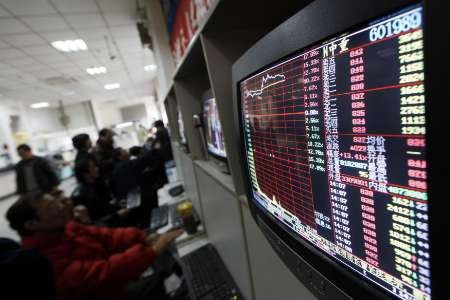China vows continued support amid dive in share prices

China's securities watchdog says it will continue to buy shares to stabilise the equity market after it sustained its biggest one-day loss in more than eight years on 27 July.
The state-funded China Securities Finance Corporation (CSFC), which has already pumped billions into the country's troubled stock market, will continue purchasing shares, "dispelling rumours that the national margin trading service provider has backed off from stabilising the stock market", the Xinhua agency reported.
The China Securities Regulatory Commission (CSRC) was also investigating "huge stock sell-offs by some individuals and will punish any malicious short-selling", it added.
Major shareholders in five listed companies were under investigation by the CSRC for allegedly selling company shares - in breach of a six-month ban in place that forbids big stakeholders from selling equities.
The regulator was also looking into two other companies for "margin financing outside approved channels", Xinhua said.
The benchmark Shanghai Composite index plunged 8.5% earlier, the biggest one-day fall since February 2007.
It came after a private gauge of Chinese manufacturing activity unexpectedly hit a 15-month low, signalling a slowdown in growth ahead for the world's second largest economy.
Investors were also worried by reports that the CSFC had started to return money it borrowed from commercial lenders ahead of schedule.
Official figures released on 27 July showed industrial profits fell 0.3% from a year earlier in June, further dampening risk sentiment.
"The rise during the past two to three weeks was too big, so the market needs to correct itself," Haitong Securities analyst Zhang Qi told the AFP news agency.
"There is also uncertainty about how the government support measures will exit the market."
Beijing has rolled out several measures to help stabilise its stock markets, including raising the limit for insurers to invest in blue chip stocks and barring major shareholders from selling stock for a six-month period.
© Copyright IBTimes 2025. All rights reserved.





















